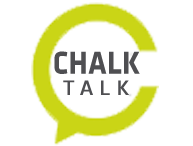Critical and Creative Thinking
May 27, 2023 2023-06-20 9:24Critical and Creative Thinking
Critical and Creative Thinking
Enhancing Online Learning Through Innovation
As the world shifts towards online learning, critical and creative thinking skills have become increasingly important for students to develop. In the digital age, access to vast amounts of information is readily available at our fingertips. However, the ability to analyze and evaluate that information critically, and to generate innovative ideas and solutions through creative thinking, is what sets individuals apart in today’s competitive landscape.
Online courses have become a popular avenue for individuals seeking to expand their knowledge and skillsets, offering flexibility and accessibility that traditional classroom settings often cannot provide. E-learning websites have also proliferated, catering to diverse interests and learning styles. However, to make the most of these resources, it is essential to cultivate critical and creative thinking skills.
Critical thinking is the process of analyzing, evaluating, and synthesizing information to form reasoned judgments and decisions. It involves questioning assumptions, considering multiple perspectives, and identifying biases and fallacies. In contrast, creative thinking is the ability to generate novel and imaginative ideas, to see problems in new ways, and to develop innovative solutions.
In online courses, critical thinking skills are vital for learners to engage with the material effectively. Through critical thinking, students can identify gaps in their understanding, evaluate sources of information, and apply their learning to real-world situations. Additionally, online learning provides opportunities for students to practice critical thinking skills in collaborative environments, where they can engage in meaningful discussions and debates with peers from diverse backgrounds and perspectives.
Creative thinking is equally crucial in online courses, as it enables learners to approach problems with an open mind and generate innovative solutions. In the absence of face-to-face interactions, creative thinking can help to foster engagement and motivation by providing opportunities for learners to think outside the box and apply their knowledge in new and exciting ways. Moreover, creative thinking can enhance the learning experience by fostering a sense of curiosity and exploration.
E-learning websites have a vital role to play in promoting critical and creative thinking skills. By offering interactive and engaging content, these platforms can help learners to develop the skills they need to succeed in a rapidly changing world. For example, gamification, simulations, and interactive quizzes can all be effective tools for encouraging learners to think critically and creatively. Additionally, social learning features, such as discussion forums and peer review, can provide learners with opportunities to collaborate and share their ideas, further enhancing their critical and creative thinking skills.
In conclusion, critical and creative thinking skills are essential for success in the digital age, particularly for learners engaging with online courses and e-learning websites. Through the development of these skills, learners can evaluate and analyze information effectively, generate innovative ideas and solutions, and approach problems with an open and curious mindset. As online learning continues to grow in popularity, the cultivation of critical and creative thinking skills must remain a top priority, ensuring that learners are equipped with the tools they need to succeed in a rapidly changing world.


